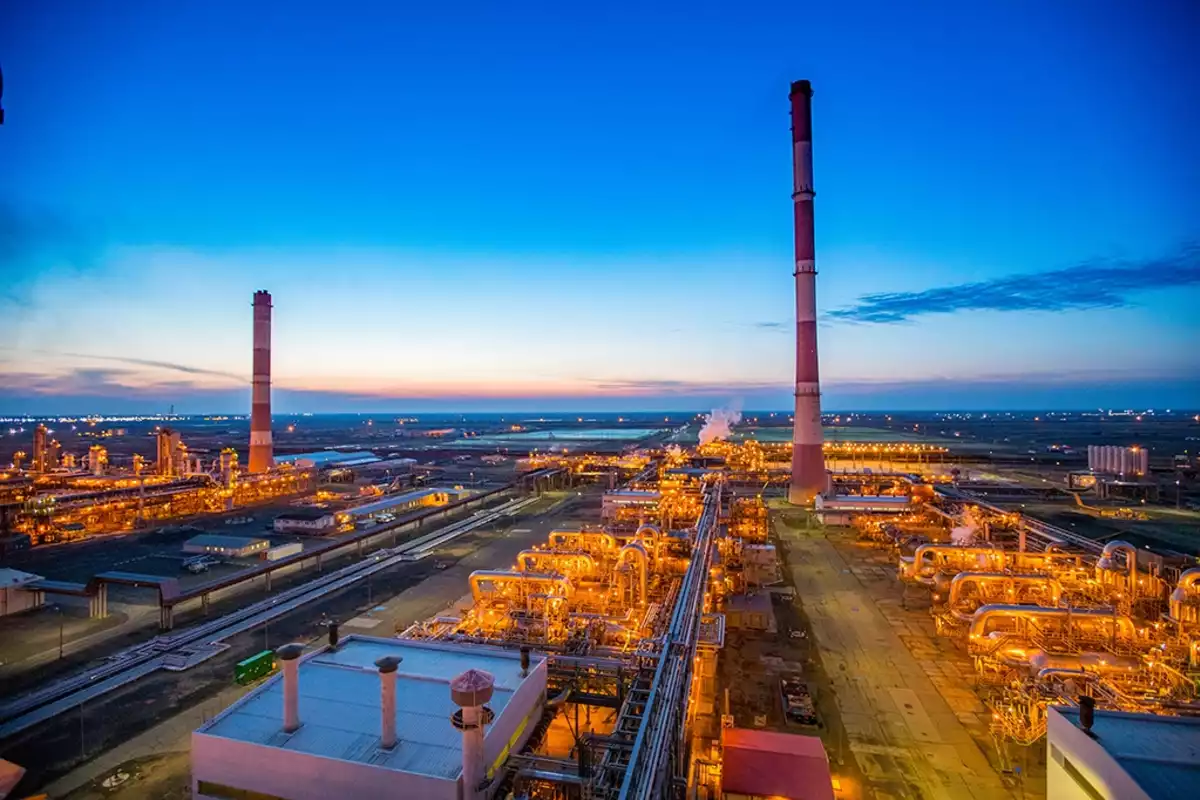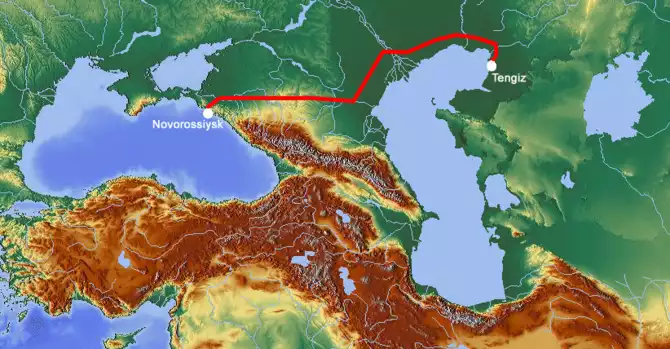
Photo credit: tengizchevroil.com
In light of recent drone attacks on key oil infrastructure, Kazakhstan finds itself facing new challenges in securing its energy export routes. The latest strike on the Kropotkin oil pumping station (OPS)-a critical part of the Caspian Pipeline Consortium (CPC)-has once again raised concerns over the vulnerability of regional energy corridors. While the Kazakh government has opted for a diplomatic response, the incident underscores the broader geopolitical tensions that are beginning to affect even countries striving to maintain neutrality. To better understand Kazakhstan’s position, response strategy, and prospects for diversifying its oil exports, The Caspian Post spoke with Maksim Kramarenko, Director of the Information and Analytical Center "Institute of Eurasian Policy."
Photo by Ayman Nartayeva
- How has Kazakhstan responded to the latest drone strike on the Kropotkin oil pumping station (OPS), a key transit point for Kazakh oil exports? Is this incident being viewed as a threat to national energy security?
- Kazakhstan has expressed concern over the renewed drone attack on the Kropotkin Oil Pumping Station (OPS) of the Caspian Pipeline Consortium (CPC), which occurred on March 24 of this year. According to Deputy Foreign Minister Alibek Kuantyrov, Kazakhstan is in contact with the Ukrainian side and is engaged in relevant negotiations. As with the first attack on the CPC, Astana is adhering to a diplomatic approach in dealing with such incidents. That said, the route remains one of the Republic's most critical corridors for oil exports.
However, at least at the official level, the incident has not yet been classified as a direct threat to national energy security. There is no sign of alarm in the public discourse of Kazakh authorities. The country’s media has been citing the Ministry of Energy, which maintains that the intake of Kazakh oil via the CPC continues in normal operating mode. Nonetheless, the Consortium itself has acknowledged that damage to the Kropotkin OPS could result in a 30% reduction in oil throughput.

Caspian Pipeline Consortium/Photo: Wikipedia
- What steps is Kazakhstan taking to protect its export infrastructure, given that the CPC is a key oil export route?
- Kazakhstan has voiced support for international initiatives aimed at protecting energy infrastructure. Notably, Astana welcomed efforts by both the United States and Russia to adopt a moratorium on strikes targeting oil infrastructure-an agreement that includes the CPC.
As mentioned above, Kazakhstan is also holding diplomatic consultations with Ukraine on this matter in an effort to ensure the security of CPC facilities. Although Kyiv has not publicly disclosed its motives, they are evident: Ukraine aims to pressure Kazakhstan into abandoning this route in order to inflict economic damage on Russia by excluding it from the existing oil export logistics that run through its territory.
- Is Kazakhstan considering diversifying its oil export routes, given the increased frequency of attacks on CPC infrastructure?
Kazakhstan began exploring alternative oil export routes in 2023, following Ukraine’s initial strikes on port infrastructure in Novorossiysk, where Kazakh oil transported via the CPC is loaded. Currently, approximately 80% of Kazakhstan’s oil exports rely on this route. Consequently, disruptions to the CPC could have a severe negative impact on the national economy.
Astana is now actively considering several alternative export routes.
First, the Baku-Tbilisi-Ceyhan pipeline. Recent initiatives have been announced to increase the throughput along this route from 1.5 million tons to 20 million tons per year.
Second, the Atyrau-Samara pipeline, through which 8.6 million tons of oil were transported last year. This pipeline connects to Russia’s broader pipeline network, offering access to European markets. The maximum capacity of this route is 30 million tons.
Third, Kazakhstan is exploring the option of exporting oil across the Caspian Sea using maritime transport.
Fourth, there is an existing export route to China, but the volume of oil deliveries via this channel remains significantly limited for now.
Share on social media